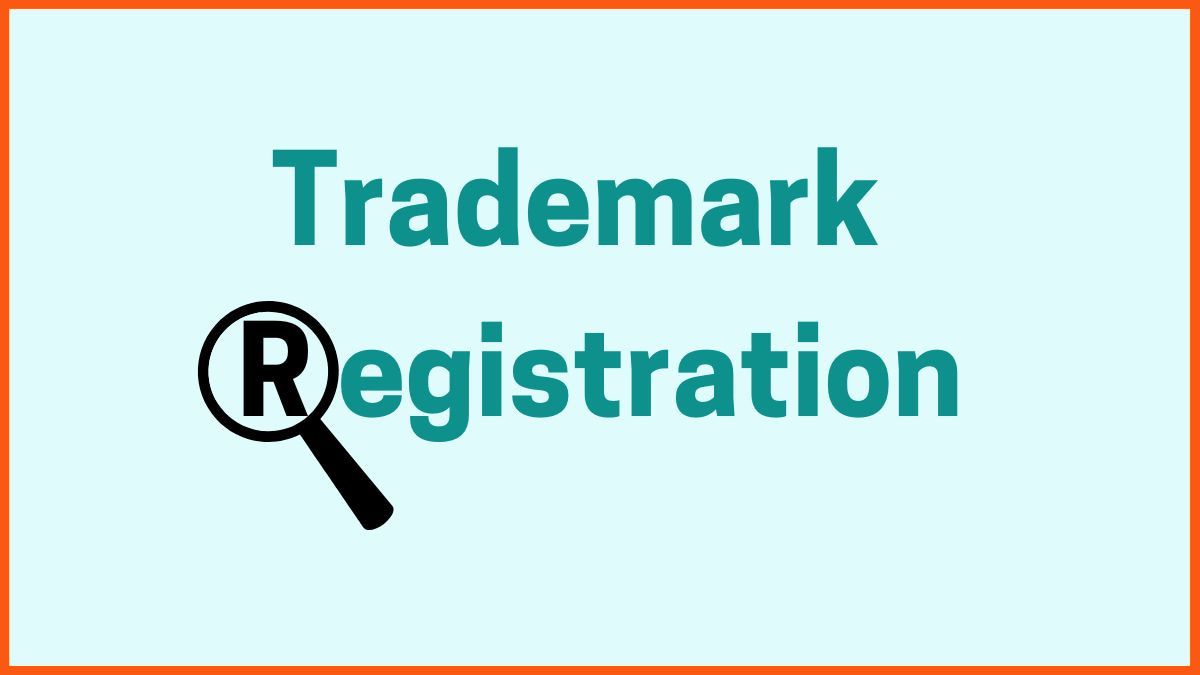In an increasingly globalized economy, the need for businesses to protect their intellectual property across borders has never been more critical. For Limited Liability Companies (LLCs) looking to expand their market presence internationally, safeguarding their trademarks is a crucial step. Trademark protection ensures that a company’s brand, logos, and product names are legally protected from infringement or misuse, both domestically and internationally.
This comprehensive guide explores the importance of international trademark protection for LLCs, the processes involved, and strategies for ensuring robust global protection for your brand.
What Is a Trademark and Why Is It Important?
A trademark is any word, symbol, logo, or design that distinguishes the products or services of one company from those of another. It’s a key aspect of a business’s identity, providing legal protection for its brand in the marketplace. For LLCs, trademarks are particularly valuable assets that represent brand reputation, customer trust, and market recognition.
Trademark protection is crucial for several reasons:
- Preventing Infringement: Without proper trademark registration, other businesses can potentially use a similar mark, leading to consumer confusion and the dilution of brand value.
- Establishing Legal Rights: Trademark registration provides the legal framework necessary to enforce rights in court and prevent others from using the mark.
- Increasing Business Value: A strong, protected trademark enhances the overall value of the business by strengthening brand recognition and offering potential licensing opportunities.
- Supporting International Expansion: As businesses grow internationally, having trademark protection in foreign markets prevents local competitors from exploiting or misusing the brand.
However, domestic trademark registration does not automatically extend to other countries, which is why international trademark protection becomes necessary.
The Importance of International Trademark Protection for LLCs
As LLCs expand into global markets, they face the risk of their trademarks being copied, misused, or diluted in foreign jurisdictions. International trademark protection provides a safeguard against such risks, enabling LLCs to:
- Control Brand Identity: Registering trademarks in foreign markets ensures that only the company can use the mark, maintaining control over its brand identity.
- Prevent Counterfeiting: Counterfeiting is a global issue, particularly in sectors such as fashion, electronics, and pharmaceuticals. International trademark protection helps prevent counterfeit products from damaging the brand.
- Establish Global Recognition: Registering trademarks internationally not only provides legal protection but also signals to consumers that the company is a legitimate, globally recognized brand.
- Legal Enforcement: International trademark protection allows businesses to take legal action against infringers in foreign markets, ensuring that their intellectual property rights are upheld worldwide.
Understanding International Trademark Laws
Trademark laws vary by country, and there is no universal system that grants worldwide trademark protection with a single registration. However, there are treaties and agreements that facilitate international trademark registration, making it easier for LLCs to protect their brands across multiple jurisdictions.
Some of the most important international trademark treaties include:
The Madrid System
The Madrid System, administered by the World Intellectual Property Organization (WIPO), is one of the most efficient ways to how much does it cost to register a trademark in Singapore in multiple countries. It allows businesses to file a single application to register a trademark in over 120 countries, including major markets such as the European Union, China, and the United States.
Benefits of the Madrid System include:
- Simplified Process: Instead of filing separate trademark applications in each country, LLCs can file a single international application through WIPO.
- Cost-Effective: Filing one application is generally less expensive than filing multiple applications in different countries.
- Centralized Management: Trademark holders can manage renewals and other administrative tasks through a centralized system.
The European Union Trademark (EUTM)
The European Union Trademark (EUTM) offers trademark protection across all EU member states. By filing one application with the European Union Intellectual Property Office (EUIPO), LLCs can protect their trademark in all 27 EU countries.
Benefits of the EUTM include:
- One Registration for All EU Countries: Businesses only need to file one application to cover all EU member states.
- Unified Legal Protection: The EUTM provides uniform legal protection across the EU, simplifying enforcement and protection.
The Paris Convention
The Paris Convention for the Protection of Industrial Property, signed in 1883, is an international agreement that offers protection for trademarks and other industrial property across 177 member countries. The convention ensures that businesses that register their trademark in one member country can apply for trademark protection in another member country within six months of the original application and receive the same filing date.
The Paris Convention provides:
- Priority Rights: This allows businesses to secure the same filing date in foreign countries as their original filing date, reducing the risk of competing claims.
- Equal Treatment: Businesses from member countries receive the same legal treatment as local businesses regarding trademark protection.
The Berne Convention
Although primarily focused on copyright protection, the Berne Convention also applies to the protection of trademarks to some extent. It ensures that trademarks and other intellectual property are protected when used in artistic or literary works across international borders.
The Hague Agreement
The Hague Agreement allows for the international registration of designs, which can sometimes include logos or specific trademark designs. Similar to the Madrid System, it simplifies the process of registering designs across multiple countries, helping LLCs protect their brand’s visual identity globally.
Steps for Securing International Trademark Protection
To protect your LLC’s trademark internationally, it’s essential to follow a strategic approach that accounts for the complexities of global intellectual property law. The following steps outline how to secure international trademark protection for your LLC:
Step 1: Conduct a Comprehensive Trademark Search
Before applying for trademark protection, it’s critical to conduct a thorough trademark search to ensure that your mark is not already in use in the countries where you plan to register. This will help avoid potential legal conflicts or rejections from trademark offices.
The search should cover:
- Existing Trademarks: Check if similar trademarks are already registered or pending in the jurisdictions where you want to register your mark.
- International Databases: Use databases such as WIPO’s Global Brand Database and the EUIPO’s eSearch Plus to conduct a global search.
Step 2: Choose the Appropriate Filing System
Depending on the scope of your international expansion, you’ll need to choose the right filing system for your trademark registration:
- If you’re targeting multiple countries, consider using the Madrid System for a streamlined process.
- For protection in the European Union, an EUTM application might be the best choice.
- For protection in specific countries not covered by international systems, you’ll need to file directly with those countries’ trademark offices.
Step 3: Prepare Your Application
When preparing your international trademark application, it’s important to ensure that your mark meets the legal requirements for registration in each jurisdiction. This typically includes providing:
- The Trademark: The word, design, or logo you wish to register.
- The Goods or Services: A clear list of the goods or services associated with the trademark, categorized under the relevant classes of the Nice Classification system.
- Owner Information: Details about the LLC, including its legal structure and address.
Step 4: Monitor and Enforce Your Trademark Rights
After registering your trademark internationally, it’s crucial to monitor its use and enforce your rights in case of infringement. This includes:
- Monitoring for Infringement: Regularly check for unauthorized use of your trademark in foreign markets, both online and offline.
- Taking Legal Action: If you discover infringement, take legal action to enforce your trademark rights. This may involve sending cease-and-desist letters, filing lawsuits, or negotiating settlements.
- Managing Renewals: Trademarks must be renewed periodically (usually every 10 years). Keep track of renewal dates to maintain your trademark rights.
Challenges and Considerations in International Trademark Protection
While international trademark protection is essential for LLCs operating globally, it comes with several challenges. Being aware of these challenges can help businesses navigate the process more effectively:
Language and Cultural Differences
Trademark applications often need to be translated into the official languages of the countries where protection is sought. However, some words or phrases that work in one language may have different or unintended meanings in another. It’s essential to conduct thorough linguistic and cultural checks to ensure that your trademark doesn’t violate local norms or cause confusion.
Different Legal Systems
Trademark laws vary widely from country to country, with different standards for what can be registered and how trademarks are enforced. Some jurisdictions have strict rules about the distinctiveness of trademarks, while others may allow more leniency.
Working with a local trademark attorney familiar with the legal landscape in each jurisdiction can help ensure that your application meets local requirements and reduces the risk of rejection or infringement disputes.
Potential for Trademark Squatting
Trademark squatting occurs when someone registers a well-known foreign trademark in a country where the legitimate owner hasn’t yet registered it. This can prevent the original owner from using their trademark in that country, forcing them to buy it back at an inflated price or lose the ability to operate under that brand name.
To avoid trademark squatting, it’s important to register your trademark in key international markets as early as possible, even if you don’t plan to enter those markets right away.
Enforcement in Foreign Jurisdictions
Even with trademark registration, enforcing your rights in foreign jurisdictions can be complex and expensive. Legal systems vary in how they handle intellectual property disputes, and pursuing legal action in multiple countries may require significant resources.
For this reason, LLCs should work with local trademark attorneys and intellectual property experts in key markets to ensure that their rights are effectively enforced.
The Role of a Trademark Attorney in International Trademark Protection
Given the complexities of international trademark law, it’s highly advisable to work with an experienced trademark attorney when seeking global protection for your LLC. A trademark attorney can assist with:
- Trademark Searches: Conducting thorough searches in multiple jurisdictions to identify potential conflicts or issues before filing.
- Application Preparation: Ensuring that your trademark application meets the specific legal requirements of each jurisdiction.
- Managing International Filings: Coordinating the filing process across multiple countries, whether through the Madrid System, direct filings, or other treaties.
- Enforcement and Dispute Resolution: Providing legal support in the event of trademark infringement or disputes, and representing your company in foreign legal proceedings if necessary.
Conclusion
International trademark protection is a vital aspect of global brand management for LLCs. As businesses expand their operations across borders, protecting their trademarks ensures that their brand identity, reputation, and market presence are safeguarded. By navigating the complex landscape of international trademark law, conducting comprehensive searches, filing through appropriate systems, and working with expert trademark attorneys, LLCs can secure robust international trademark protection that supports their long-term growth and success.




